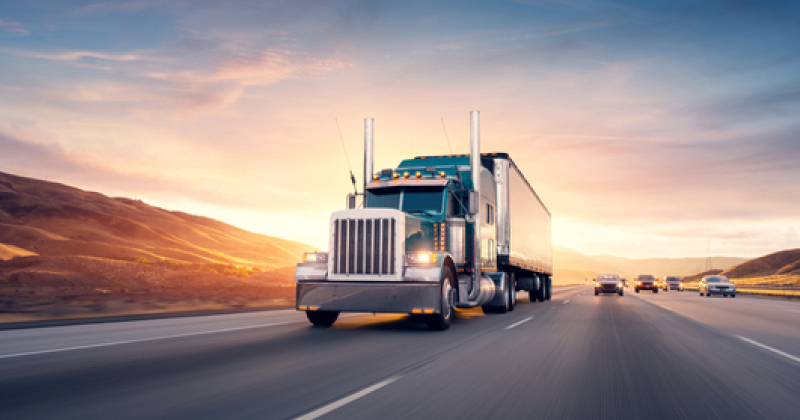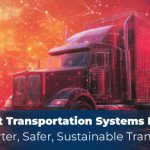
Currently, the transportation and logistics industry is going through a paradigm shift: automated freight by road. The technology involved has the potential to reduce the cost of delivering products across the land dramatically. This development might support what may turn out to be the most pervasive impact of driving technologies on many people’s lives.
Transport industry composition
With a total value of $4.1 trillion, the trucking industry presently accounts for 43% of overall logistics expenditures globally and is expected to grow to $5.5 trillion by 2027.
According to the American Trucking Association (ATA), trucking is the most popular means of inland freight transportation in the United States, accounting for 67.7% of the sector3 (or 11.8 billion tons of freight carried in 2019), and it is expected to remain so for the next decade. In the United States, the industry generated $791.7 billion in revenue in 2019, and it is predicted to expand by 40% in the next 30 years.
Trucking in the ’80s to 2000s
The 1980s saw advancements in engine technology and the introduction of automated transmissions. This made driving more accessible for everyone, and it also allowed women to enter the industry of truck driving. Trucks with automatic transmissions made going easier for women. Furthermore, the adoption of satellite technology allowed truck drivers to communicate more efficiently, ending some of the horror stories about getting lost on the road. These developments ushered in a new era of female drivers, which has only risen in popularity over time.
All states established a maximum gross weight limit of 80,000 pounds on interstate routes in 1981. Truck stops with weights and measures were put on highways, making driving more difficult.
The trucking sector was deregulated in 1984, allowing it to become more public-oriented. Professional driver standards became a focus, and the interaction between drivers and the general public became a concern for many businesses. It was critical to have good relationships between truck drivers and non-truck drivers.
The business began to de-regulate in the late 1990s, and more independent owners/operators entered the market.
The Motor Carrier Safety Improvement Act (MCSIA) was signed in 1999. The Federal Motor Carrier Safety Administration was established because it currently controls the whole sector.
In the last two decades
It’s no wonder that technology is constantly reshaping the trucking sector. Electronic-on-board recorders (EOBRS) can now track various information, including fuel usage and position and the number of hours a driver spends on the road and rest. Technological advancements make drivers safer while also increasing the efficiency of the cab driver.
Autonomous trucks, or vehicles that “drive” themselves, are now being discussed. Although technology expands possibilities, there can never be a substitute for a human truck driver’s solid judgment and expertise. Whatever the future holds in-vehicle technology, the trucking sector is the beating core of American business and will never change.
Present-day
Rising oil prices have recently impacted everyone in the trucking business. The cost of transporting commodities throughout the world has grown, contributing to an increase in the cost of goods and services. Everyone nowadays wants to move freight more quickly and efficiently at a lesser price. This is a never-ending battle for the transportation industry, and it is becoming increasingly difficult to achieve.
The trucking sector is beset by a driver shortage, traffic congestion, higher regulations, growing expenses, and security concerns. These barriers impact how our goods are transported, and they place additional pressure on the transportation industry to keep its promises and deliver freight on time.
New-age technologies and solutions
Collision Mitigation Technology (CMT)
It is a type of collision avoidance technology that everyone is aware of the trucking industry’s dangers. As a result, collision mitigation software is one of the fastest-growing types of semi-truck technology. Collision mitigation employs a variety of devices, including radar, cameras, and sensors, to continuously monitor and reduce risks on the road. Live obstacle detection and other resources collect and use data to warn drivers of potential risks, reducing the risk of accidents and other problems.
Semi-truck collision mitigation technology protects both drivers and the general public. Preventative technology can also help you maintain your fleet on the road and avoid costly repairs, delays, and litigation.
Electronic Logging Devices
All interstate trucks must now employ electronic logging devices (EDLs) according to federal law. These devices are not only required for compliance, but they are also creative pieces of technology that can help your fleet stand out from the competition. EDLs track and record your drivers’ hours to maintain compliance with rules. While it may appear to be a drawback, modern semi-truck technology like ELDs may boost productivity, enhance drivers’ lives, and make the roadways safer.
Dynamic Routing
Much of the new technology focuses on route optimization in the transportation business. Innovative gear and software work together with dynamic routing technology to collect real-time data and find the best possible path for any delivery. These devices assist drivers in avoiding unnecessary highways and reducing fuel consumption. Routes that are automatically optimized are flexible and take into account weather, traffic, and other real-world barriers. Dynamic routing provides both immediate and long-term benefits for delivering your freight.
Final words
Now we know how the transportation industry has changed over the decades. New technologies have made it more accessible as everything is now being automated. The trucking companies need to be competitive, and for that, they rely on Trucking solutions providers. TMS-Digital is one of the renowned names in the industry for its exceptional range of services. We have you covered from dispatch, tickets, IFTA, and trucker to equipment maintenance. Plus, our solutions are cyber secured so you can have peace of mind. Partner with us today!




